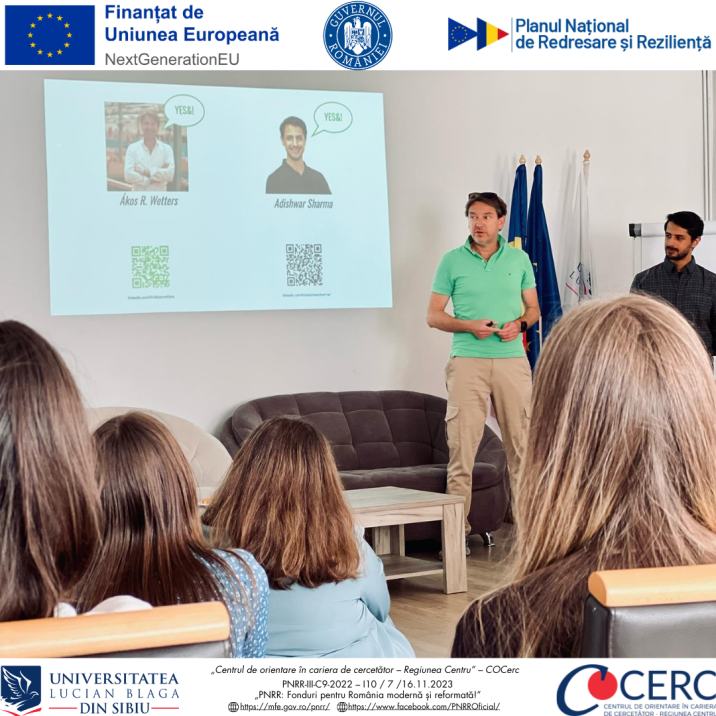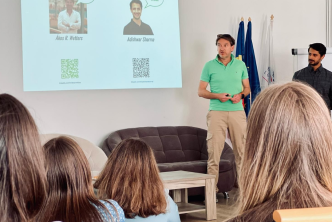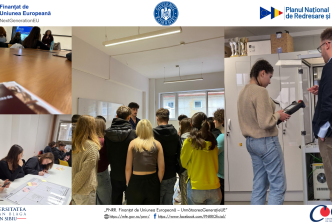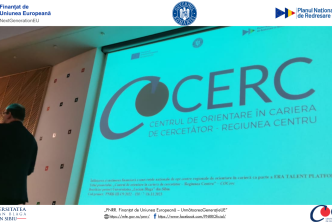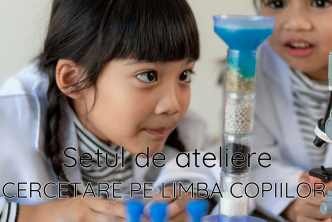English version (Original)
Interviewer: So without further ado, Akos Wetters, you are an innovator, teacher, coach, trainer, facilitator, and a skilled presenter, as we just saw. What is your connection with innovation? How did your interest in innovation appear in your life, and what does it mean to you now?
Akos Wetters: Innovation, to me, is trying out something new. As simple as it sounds, I always felt it – even in my corporate career – trying out new forms of collaboration, even when I was living on the other side of the planet. In education, it’s about facing the challenges we have as teachers. For example, how to create engagement with our cohort, how to increase the effectiveness of learning. Being a practitioner, the solution forward is to try out something new. Because if you do what you did, and you think like you thought, you get what you got. If you want something new, you have to change the way you think, and change your actions. That applies to yourself, and, like we saw today in this session, it’s also about personal leadership, self-regulated learning – basically, live as you preach.
One concrete example: I was working with a challenge partner on a project. The team had already been instructed to do something on Wednesday afternoon, but then the challenge partner raised a topic that was very valuable. It basically overruled what we were supposed to do. So I went back to my cohort and told them: “Drop your pens, stop what you’re doing, ignore what I said earlier. This is what you’re going to focus on, because it’s a new insight, and I find it important for you, and for the challenge partner.” So from design to deployment it was two minutes. That is what I call innovation – and I prefer to do it rather than to talk about it.
Interviewer: You just raised something I find important – how difficult is it to convince people in two minutes, if they were already set on something?
Akos Wetters: Definitely, this happened halfway through the course. When I engage with a new cohort, I spend the first two weeks really creating a cohort feeling. We do a lot of teamwork, and to make sure peer-to-peer learning will take place, it helps if they know each other from the beginning, rather than working in isolated teams. So in those first two weeks, I invested a lot of effort.
Challenge-based learning is also different from what many are used to in traditional education. It focuses on learning by doing, a very active form of learning. Of course, disciplinary knowledge is important, depending on the domain – whether it’s energy, climate, mobility, or even education. Sooner or later you need disciplinary knowledge, but the learning approach can be different.
At the start, I even ask participants: “Are you wearing diapers?” Usually they don’t raise their hands, and I tell them, “OK, then I don’t have to spoon-feed you.” That’s the essence. I also ask what their ambition is, why they are here.
Through the process, there are regular interactions with teams, a lot of formative assessment moments. I can nudge them, ask questions so they self-regulate to take the next step, without me teaching them directly what that step should be. As a facilitator, I maintain the bigger picture, while teams create their own personalized learning paths. Every team is different, even if tackling the same challenge as a previous year. So those first two weeks are crucial.
Once they understand that I treat them as my “guinea pigs” or my “living lab,” and that we experiment for the greater purpose of improving the program for future cohorts, then it takes no effort to tell them, “Stop what you’re doing, let’s experiment.” They see the bigger purpose.
Interviewer: Great. I know you have a multicultural background. What is the contribution of that background to what you do and think now?
Akos Wetters: I grew up in a trilingual environment: Dutch, Hungarian, and German. My parents spoke German with each other. I was born and raised in the Netherlands. My mother tongue is Hungarian. My father is Indonesian, so I also heard a lot of Indonesian, especially about food – because let’s be honest, Dutch cuisine is not exactly famous!
There’s a beautiful Hungarian proverb: “You are as many people as you speak languages.” For me, it comes naturally. During my student years, I actively sought international environments, being a member of a European student association, and then having an international professional career, working almost on all continents except Antarctica. I thrive in this environment because I’m very people-centric, and you need to communicate beyond language.
Interviewer: How and why did you open Commit2Innovate, and how is it different from other learning hubs?
Akos Wetters: Very simple. With the co-founders, we basically asked: why isn’t every day like summer school?
Let me explain. I started designing and running my first summer schools in 2012–2013, and it was such a fantastic experience. Within EIT, these summer schools were compulsory courses. You’re there in the middle of summer, wearing shorts and flip-flops, standing next to the barbecue, talking about life at 2 AM in the hotel lobby. You’re surrounded by experts, mentors, coaches. You expand your network, have a great time, and still deliver a high-quality, accredited course.
So we thought: why can’t this vibe be the standard in education? How come we only do it during summer school? We wanted to take that experience – where education happens in a positive, high-energy, socially connected environment – and bring it to every activity. That’s the foundation of Commit2Innovate.
Interviewer: Two more questions. Do you think there is an adequate age when children should be placed in research-related activities?
Akos Wetters: That depends, and definitely requires observing all ethical requirements, which may also differ by country. But if it’s about observation, you could argue it begins in the womb! I have twins, and just observing them growing up shows how they interact, how they learn from each other, and from the world.
Whenever I need to talk about creativity or collaboration, I like the example of a kid from Cluj, a kid from Naples, a kid from London, a kid from Paris – all four years old, building a sandcastle. They don’t speak the same language, but they can build together. If the water rises and washes part of the castle away, they cry a little, then two minutes later they adapt – maybe building the next tower higher, maybe using the water to build a canal.
A lot of these skills are innate. We should learn from how young kids interact beyond language and culture, and take that as inspiration for later life. Learning by doing – which is also what we do with challenge-based learning – starts from a very young age. Of course, respecting political and ethical boundaries.
Interviewer: And the last one – are you afraid of AI? Should people be concerned about questionable interactions with virtual intelligence?
Akos Wetters: For me, AI is a tool. I always say, “See AI as your ally.” Of course, there are healthy concerns around security. If you write your PIN code on your bank card and lose it, you lose your money. The same principle applies.
If we use AI prudently, and see it as a tool and an opportunity – not the goal itself – it can add huge value. For example, when I was a student, I had to go through drawers and drawers to find four articles, which took eight hours. Now you can do that in minutes and spend your time on higher-value work.
So anything that can be standardized or automated should be handled by technology, so humans can focus on what we do best. As long as we understand and manage its proper use, there is no reason to fear AI.
Interviewer: Thank you very much. It was a pleasure to talk to you.
Akos Wetters: Thank you for your questions.
Romanian version (Translated)
Intervievator: Fără alte introduceri, Akos Wetters, ești inovator, profesor, coach, trainer, facilitator și un prezentator talentat, așa cum am văzut. Care este legătura ta cu inovația? Cum ți-a apărut interesul pentru inovație în viață și ce înseamnă ea pentru tine acum?
Akos Wetters: Pentru mine, inovația înseamnă să încerci ceva nou. Oricât de simplu ar suna, mereu am simțit asta – chiar și în cariera mea corporatistă – încercând forme noi de colaborare, chiar și când locuiam pe cealaltă parte a globului. În educație, e vorba de a face față provocărilor pe care le avem ca profesori. De exemplu, cum să creăm implicare cu cohorta noastră, cum să creștem eficiența învățării. Fiind practicant, soluția este să încerci ceva nou. Pentru că dacă faci ce ai făcut și gândești cum ai gândit, vei obține ce ai avut. Dacă vrei altceva, trebuie să îți schimbi modul de a gândi și acțiunile. Asta se aplică la tine, și cum am văzut și azi în această sesiune, ține de leadership personal, învățare autoreglementată – practic, să trăiești ceea ce predici.
Un exemplu concret: lucram cu un partener de provocare la un proiect. Echipa fusese deja instruită să facă ceva miercuri după-amiază, dar partenerul a ridicat o temă foarte valoroasă. Practic, a anulat ce trebuia să facem. M-am întors la cohorta mea și le-am spus: „Lăsați pixurile, opriți-vă, ignorați ce am zis înainte! Pe asta vă concentrați acum, pentru că e o perspectivă nouă și o consider importantă atât pentru voi, cât și pentru partenerul de provocare.” De la idee la implementare a durat două minute. Asta numesc eu inovație – și prefer să o fac, nu doar să vorbesc despre ea.
Intervievator: Ai menționat ceva important – cât de greu e să convingi oamenii în două minute, dacă deja se fixaseră pe altceva?
Akos Wetters: Cu siguranță, asta s-a întâmplat la jumătatea cursului. Când încep să lucrez cu o nouă cohortă, petrec primele două săptămâni creând sentimentul de comunitate. Facem multă muncă în echipă, și ca să asigurăm că are loc învățarea peer-to-peer, ajută dacă se cunosc de la început, nu să lucreze în echipe izolate. Deci, în acele prime două săptămâni, am investit multă energie.
Învățarea bazată pe provocări e și ea diferită față de educația tradițională. Se axează pe „learning by doing”, un mod activ de învățare. Desigur, cunoștințele de specialitate contează, depinde de domeniu – indiferent dacă e energie, climă, mobilitate sau chiar educație. Mai devreme sau mai târziu ai nevoie de expertiză, dar abordarea de învățare poate diferi.
La început, le și întreb pe participanți: „Purtați scutece?” De obicei nu ridică mâna, și le spun: „OK, atunci nu trebuie să vă hrănesc cu lingurița.” Asta e esența. Întreb și ce ambiție au, de ce sunt aici.
Pe parcurs, interacționez regulat cu echipele, avem multe evaluări formative. Pot să îi „împing” ușor, să pun întrebări astfel încât să se autoregleze și să facă următorul pas, fără să le predau direct care ar trebui să fie acel pas. Ca facilitator, țin imaginea de ansamblu, în timp ce echipele își creează propriul traseu de învățare. Fiecare echipă e diferită, chiar dacă are aceeași provocare ca o generație anterioară. Deci acele două săptămâni sunt cruciale.
Când înțeleg că îi tratez drept „cobaii mei” sau „laboratorul meu viu” și că experimentăm pentru a îmbunătăți programul pentru viitori participanți, nu mai trebuie să depun efort să le spun: „Opriți-vă, hai să experimentăm”. Văd scopul mai mare.
Intervievator: Minunat. Știu că ai un background multicultural. Care e contribuția acestuia la ceea ce faci și gândești acum?
Akos Wetters: Am crescut într-un mediu trilingv, în limbile olandeză, maghiară și germană. Părinții mei vorbeau între ei în germană. M-am născut și crescut în Olanda. Limba mea maternă e maghiara. Tatăl meu este indonezian, deci am auzit multă indoneziană, mai ales legat de mâncare – să fim sinceri, bucătăria olandeză nu e tocmai faimoasă!
Există o vorbă maghiară frumoasă: „Ești atâția oameni câte limbi vorbești.” Pentru mine a fost natural. În studenție, am căutat intenționat medii internaționale, am fost membru într-o asociație studențească europeană, apoi am avut o carieră profesională internațională, lucrând aproape pe toate continentele, cu excepția Antarcticii. Îmi priește acest mediu pentru că sunt foarte orientat spre oameni, și trebuie să comunici dincolo de limbă.
Intervievator: Cum și de ce ai deschis Commit2Innovate și cu ce este diferită față de alte hub-uri educaționale?
Akos Wetters: Simplu. Cu co-fondatorii ne-am întrebat: de ce nu poate fi fiecare zi ca la școala de vară?
Lasă-mă să explic. Am început să proiectez și să organizez primele mele școli de vară în 2012–2013 și a fost o experiență fantastică. În cadrul EIT, școlile de vară erau cursuri obligatorii. Ești acolo, în mijlocul verii, în pantaloni scurți și șlapi, lângă grătar, vorbind despre viață la 2 dimineața în holul hotelului. Ești înconjurat de experți, mentori, coachi. Îți extinzi rețeaua, te distrezi, și totuși livrezi un curs de calitate, acreditat.
Așa că ne-am gândit: de ce nu poate această atmosferă să fie standardul în educație? De ce o facem doar la școala de vară? Am vrut să aducem acea experiență – unde educația are loc într-un mediu pozitiv, energic, conectat social – în toate activitățile. Asta este fundația Commit2Innovate.
Intervievator: Două întrebări scurte. Crezi că există o vârstă potrivită la care copiii să fie implicați în activități de cercetare?
Akos Wetters: Depinde, și bineînțeles trebuie respectate cerințele etice – care pot varia de la țară la țară. Dar dacă vorbim de observare, poți spune că începe încă din pântece! Am gemeni, și doar observându-i crescând, vezi cum interacționează, cum învață unul de la altul și de la lume.
Când trebuie să vorbesc despre creativitate sau colaborare, îmi place exemplul cu un copil din Cluj, unul din Napoli, unul din Londra, unul din Paris – toți de patru ani, construind un castel de nisip. Nu vorbesc aceeași limbă, dar colaborează. Dacă apa vine și dărâmă o parte din castel, plâng puțin, apoi în două minute se adaptează – poate construind următorul turn mai sus, poate folosind apa să facă un canal.
Multe abilități sunt înnăscute. Trebuie să învățăm de la felul în care interacționează copiii mici dincolo de limbă și cultură și să luăm inspirație pentru viața de adult. „Learning by doing” – ceea ce facem și la challenge-based learning – începe devreme. Desigur, cu respectarea limitelor etice și politice.
Intervievator: Și ultima întrebare – îți e frică de AI? Ar trebui să ne temem de interacțiuni problematice cu inteligența virtuală?
Akos Wetters: Pentru mine, AI-ul este o unealtă. Mereu spun: „Privește AI ca pe un aliat.” Sigur că există preocupări de securitate. Dacă îți scrii codul PIN pe card și îl pierzi, pierzi banii. La fel e și aici.
Dacă folosim AI cu prudență și îl vedem ca pe o unealtă și o oportunitate – nu scopul final – poate aduce valoare enormă. De exemplu, când eram student, trebuia să caut ore în șir prin sertare ca să găsesc patru articole. Acum faci asta în câteva minute și îți folosești timpul pentru lucruri mai valoroase.
Tot ce poate fi standardizat sau automatizat ar trebui să fie făcut de tehnologie, iar noi să ne ocupăm de ce facem cel mai bine. Atâta timp cât înțelegem și gestionăm corect folosirea AI, nu avem de ce să ne temem.
Intervievator: Mulțumesc mult. A fost o plăcere să vorbesc cu tine.
Akos Wetters: Îți mulțumesc pentru întrebări.

